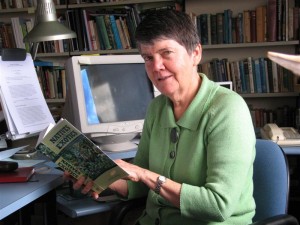Connecting the Colonies: Empires and Networks in the History of the Book
The Bibliographical Society of Australia and New Zealand Inc (BSANZ) Annual Conference 2017
Connecting the Colonies: Empires and Networks in the History of the Book
Hobart, Tasmania, Australia
22-24 November 2017
Call for Papers
Empires of all kinds – commercial, geo-political, bureaucratic – are defined by their peripheries as well as their centres, by the flows of information that maintain or destabilise their structures of authority and control.
BSANZ, in collaboration with the Society for the History of Authorship Reading and Publishing, invites scholars and researchers to consider the printed word, the book, and texts of all kinds, as both mechanism and matter of transmission.
We invite proposals for 20-minute papers on any matters of bibliographical interest, traditional and contemporary. Possible topics include, but are not limited to:
- Commercial empires: the book as a commodity in colonial contexts
- Across boundaries: print networks across geo-political, commercial or bureaucratic borders
- The trans-temporal: the afterlife of books and re-imagining of ideas
- Indigenous cultures, frontier encounters, and the presence or absence of print
- The stuff of legend: the role of print in constructing colonial and imperial consciousness
- The book as treasured possession: emotion, ownership and display
Proposals for three-person panel discussions are also welcome.
Some financial assistance towards travel costs may be available for postgraduate students who are presenting papers. Please enquire when submitting your proposal, and include a brief budget outlining your anticipated travel costs.
Proposals – including, a 250-word abstract title of paper, name and institutional affiliation of each author, a brief biography of each author, email address of each author, and 3-5 keywords – should be sent to the convenor, Ian Morrison ian.morrison@education.tas.gov.au.
Presenters must be members of the Bibliographical Society of Australia and New Zealand. The deadline for submissions is Friday 31 March 2017.
Marsden Success for Centre Member
Congratulations to CROCC member, Professor Judy Bennett, who was awarded $710,000 in the recent Marsden Fund round. Her research will explore ‘Constant coconuts: a history of a versatile commodity in the Pacific world’. Judy was also the lead investigator in the the Marsden Fund project ‘Mothers’ Darlings: children of indigenous women and World War Two American servicemen in New Zealand and South Pacific societies’ awarded in 2009.
‘Constant coconuts: a history of a versatile commodity in the Pacific world’.
Within the humid tropics, along the shorelines of atolls and high islands, the coconut palm flourishes, providing food, medicines, cosmetics, and household items for myriad Pacific societies. Yet no commodity history of the coconut exists. As a pathway to understanding globalisation, this research will analyse how from c.1840 onwards, products from the “nut” became commodities, how their production and consumption affected individual communities, power relations, mobility, culture, economies, and environment within the Pacific world and beyond. It will consider why, for most Island societies, the coconut became often the sole export staple, and the consequences of such dependency. A key focus is the fluctuating relationship between production and natural conditions, such as rainfall, as well as external challenges, such as declining markets, which tested indigenous agency. Recently, the coconut’s value as a source of biofuel and health and beauty products has significantly revived production. While the distant past is mainly recorded in archives, this network of producers, marketers, governments, and consumers is accessible to ethnographic methods, such as extended observation. The planned book will combine two perspectives: a) commodity chain analysis to trace economic and social linkages; b) ethnographic investigation. Archival and other documentary research will provide evidence for both.


